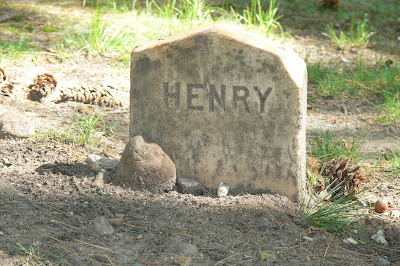I have since come to appreciate her in a whole new way. As one of Concord, Massachusetts' favorite daughters, she was a contemporary and comrade of the great Transcendentalists, including Henry David Thoreau and Ralph Waldo Emerson, who were establishing themselves as some of the elite American thinkers of the Nineteenth Century.
Recently, at my daughter's suggestion, I revisited Louisa May Alcott's storytelling and buzzed through Eight Cousins and its sequel, Rose in Bloom. I enjoyed my visit with Rose and the boys. It was interesting to approach the lovely stories from a different (older) perspective. While I no longer held my breath with each twist and turn of the storyline, I still delighted in her well-drawn characters and portrayal of happy homes and familial affection. These are feel-good stories. They are what they are.
What did surprise me this time around was noting Louisa's blatant promotion of her neighbors. In Rose in Bloom, which could be considered her handbook on how to be an exceptional, gracious, kind, charitable, virtuous, and noble young lady, she doesn't fail to give her suggestions on what well-read young people ought to be reading. In response to the suggestion that Mac seems to be generally uplifted and in good spirits, he credits his time spent considering the wisdom of Thoreau and Emerson:
"'It is the good company I've been keeping, if anything. A fellow can't spend 'A Week' with Thoreau and not be the better for it. I'm glad I show it, because in the scramble life is to most of us, even an hour with such a sane, simple, and sagacious soul as his must help one,' said Mac, taking a much worn book out of his pocket with the air of introducing a dear and honored friend."
Rose's response (which I can't help thinking would be Louisa's as well):
"I've read bits, and like them, they are so original and fresh and sometimes droll."
Then when his little friend expressed some uncertainly in her future, Mac prescribes more of that 'best medicine' that he had encountered:
"He felt a curious desire to help in some way, and could think of none better than to offer her what he had found most helpful to himself. Picking up another book, he opened it at a place where an oak leaf lay and, handing it to her, said, as if presenting something very excellent and precious: 'If you want to be ready to take whatever comes in a brave and noble way, read that, and the one where the page is turned down.'"
He handed her a copy of the Essays of Ralph Waldo Emerson.
"'I never dared to read these Essays, because I thought they were too wise for me,' Rose admits hesitantly.
"'The wisest things are sometimes the simplest, I think. Everyone welcomes light and air, and cannot do without them, yet very few could explain them truly. I don't ask you to read or understand all of that, don't myself, but I do recommend 'Self-Reliance', 'Heroism', 'Love' and 'Friendship.'"
I must echo Mac's suggestion. And Louisa's.
The combined writings of these two men provide enough wisdom for the ages. They are timeless and offer a bit of sanity in a world that often forgets to stop and smell the roses. I imagine that Louisa's time spent with her great mentors contributed to her boldness in pursuing what she loved.
How could she repay them?
Why, a shameless plug, of course!



































